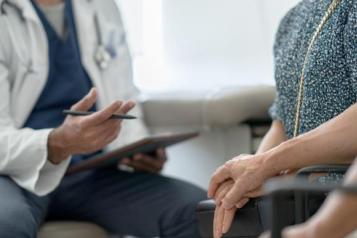Patients asked to be kind after increase in abuse of GP practice staff

NHS services are open and are there to help - however, they are facing increased demand and dealing with the continued challenges of the COVID-19 pandemic.
The Act as One health and care partnership in Bradford district said GP practices are now providing more appointments than they did pre-pandemic, with latest figures showing that almost 85,000 additional people are being seen when comparing figures for April to August 2019 to April to August 2021. The majority, about 60%, are seen face to face where it is clinically appropriate to do so after an initial assessment by telephone or video consultation.
Local leaders say health and care services are continuing to work differently to protect patients and staff. These pressures are being felt across the local NHS, and the infection control measures still needed to keep patients and staff safe also affect health services’ capacity and how they work.
Before the pandemic, NHS primary care services had already introduced different ways to assess people’s health care needs before seeing them in person, for example:
- telephone triage – to assess if help can be arranged there and then without the need for patients to travel to their GP practice
- care navigation – helping patients get direct access to a range of therapy, nursing or other services first time, without the need to see a GP
- e-consultation – where people can ask for health advice online.
Infection prevention
Dr James Thomas, a local GP and clinical chair of NHS Bradford District and Craven Clinical Commissioning Group, said: “General practice is open and has been throughout the pandemic, but due to COVID-19 the way patients are seen in the NHS has changed. We have to take several steps to prevent the spread of infections to people who are frail, vulnerable and sick. These are the people we tend to see the most of in general practice.
“This means that every appointment that is face to face takes longer as we have to wipe down chairs and couches, clean rooms and change PPE after each patient. We are also unable to have lots of people in waiting rooms at any one time due to essential social distancing. The last thing we want is to bring people into our practices that may have COVID-19 and put either our patients or staff, at risk of that infection.”
Therese Patten, chief executive for Bradford District Care NHS Foundation Trust, said:
We are concerned with the level of abuse and aggression that people are facing in our GP practices and we ask people to consider their actions. Our colleagues are also someone’s mother, father, sister or brother and this has an impact on their life outside work. Our local NHS organisations are working together to consider all available options to increase capacity and see people as soon as possible across all our services. We’d like to thank the majority of patients who continue to show kindness and patience to our colleagues, we very much appreciate your support and understanding.
Mel Pickup, chief executive for Bradford Teaching Hospitals NHS Foundation Trust, said: “We know that when people experience difficulties getting health care or face long waits for treatment, it causes anxiety and impacts on people’s lives. So all NHS partners are working together to treat the most urgent patients and those waiting longest.”
“In hospitals, community services and GP practices we continue to treat people online, over the phone – as well as seeing them in person when needed – so people can get the help they need without putting them at risk of COVID-19.”

